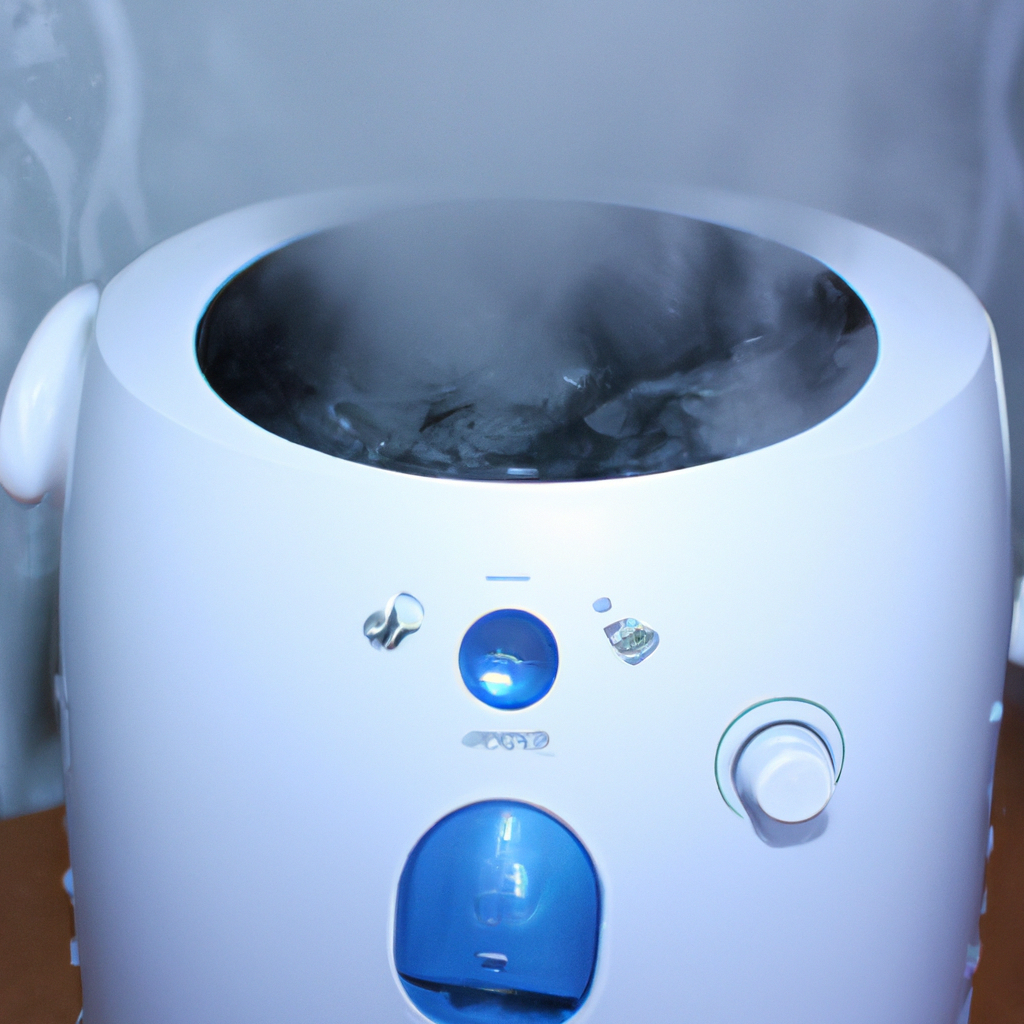Humidifiers are a popular choice for many households, and the question of what kind of water to put in them is an important one.
Yes, you can put cold water in a humidifier. However, it is best to use distilled or filtered water to prevent mineral buildup in the machine. Additionally, you may want to consider using a humidifier filter to improve the performance and extend the life of the humidifier.
Using cold water has both advantages and disadvantages that must be considered when making this decision.
This article will explore whether it is safe to use cold water in humidifiers and provide information about its potential benefits and drawbacks.
The presence of moisture in indoor air can have a range of positive effects on health, from reducing symptoms associated with allergies or asthma to improving sleep quality.
Humidifiers work by producing steam containing minute droplets of water which then evaporate into the surrounding atmosphere, raising humidity levels in the home.
As such, they can play an integral role in creating comfortable living conditions within the home environment.
While cold water may seem like an obvious choice for filling up your humidifier, there are several factors that should be taken into account before doing so. In order to ensure optimal performance and safety, it is essential to understand how using cold water may affect your device’s functioning as well as any benefits or risks associated with it.
This article aims to answer these questions and offer insight into how best to utilize cold water in humidifiers safely and effectively.
Understanding Humidifiers
Humidifiers are an important part of home maintenance and comfort. They come in a variety of types that serve different functions, such as evaporative humidifiers, ultrasonic humidifiers, impeller humidifiers and steam vaporizers.
Each type works to increase the humidity level in indoor air, which can be beneficial for health and well-being. All types of humidifier require regular cleaning and maintenance to ensure optimal performance.

The benefits of using a humidifier include improved respiratory problems associated with allergies and asthma, reduced static electricity shock from dry air, and easier breathing during cold season months when humidity levels drop significantly indoors. Additionally, maintaining ideal relative humidity levels in the home prevents wood furniture from drying out or cracking due to low moisture content in the air.
By understanding the different types of humidifiers available and their purpose for increasing indoor air quality, consumers can make better informed decisions about how best to maintain desirable humidity levels in their homes. With this knowledge comes a deeper appreciation for why correct usage of water is essential for effective operation of any type of humidifier.
Types Of Humidifier Water
A humidifier can be a great addition to any home, as it helps keep the air moist and comfortable.
But before one adds water to their humidifier, they must first understand what type of water is best suited for their device.
In times past, many people simply used tap water in their humidifiers; however, with modern technology ever evolving, other types of waters are available.
Demineralized water, evaporative coolers, steam vaporizers, compression humidifiers, and ultrasonic humidifiers all use different types of water.
Demineralized water is an ideal choice for evaporative coolers and steam vaporizers because it has no mineral content which could otherwise cause damage or clog the device’s filter. Compression humidifiers often require distilled or filtered water since these devices lack filters within them that would otherwise trap minerals from regular tap water.
Ultrasonic humidifiers do not require special treatment when using tap water but should be cleaned periodically to prevent buildup on the device’s coils caused by mineral deposits left behind after evaporation. As a result of this knowledge-based approach to selecting the right type of humidity control solution for homes, users can confidently choose their preferred method while ensuring longevity and optimal performance of their device.
Benefits Of Cold Water In A Humidifier
Using cold water in a humidifier offers many benefits.
Firstly, it is more cost-effective than using warm or hot water; since the device will not need to use electricity to heat up the water, operating costs are significantly decreased.
Secondly, cold vapor helps reduce static electricity and airborne dust which can improve air quality and help lessen allergy symptoms.
Thirdly, it increases the life of the humidifier since there is no risk of burning out parts due to high temperatures from heating elements.
Fourthly, some types of bacteria cannot survive at lower temperatures so utilizing cold water provides an additional layer of protection against airborne germs.
Allowing for these health benefits, it is important to consider potential risks associated with using cold water in a humidifier as well.
Potential Risks Of Cold Water In A Humidifier
Using cold water in a humidifier can be a slippery slope. Cold water has the potential to cause more harm than good.
While it may provide some relief from dryness and airborne bacteria, the condensation created by cold water can result in mineral buildup that is difficult to remove and could lead to long-term damage of your device.
The risk of evaporation further increases when using cold water in a humidifier. This occurs because there is less heat energy available for vaporizing the liquid into mist or steam before it enters your home’s air supply.
The resulting low humidity levels will not only make you uncomfortable but also increase static electricity and dust particles that are already present in the air.
As such, while cold water might offer short term relief from dryness, its drawbacks far outweigh any benefits it may have.
To prevent unnecessary risks, always use warm or hot tap water whenever possible when filling up your humidifier tank – this will ensure optimum moisture levels without compromising on safety or performance.
Conclusion
Humidifiers have become an increasingly popular way to add humidity into homes and other indoor spaces. While it may be tempting to fill up a humidifier with cold water, there are risks that must be taken into consideration before doing so.
Cold water can cause mineral deposits to form in the humidifier which can damage its components or reduce their efficiency. Additionally, if not properly maintained, bacteria can easily grow in cold water-filled humidifiers, leading to health concerns for those living in the space where the humidifier is located.
However, when used correctly and regularly cleaned according to manufacturer instructions, cold water can provide some benefits such as increased moisture output and faster evaporation rates than warm water.
In conclusion, while cold water may offer certain advantages when placed in a humidifier, these must be weighed against potential risks including mineral build-up and bacterial growth. Careful attention should be paid to cleaning and maintenance of your unit as well as following all manufacturer instructions for use.
By taking precautions and understanding the effects of using cold water in a humidifier, users will benefit from improved air quality without sacrificing safety or comfort.




